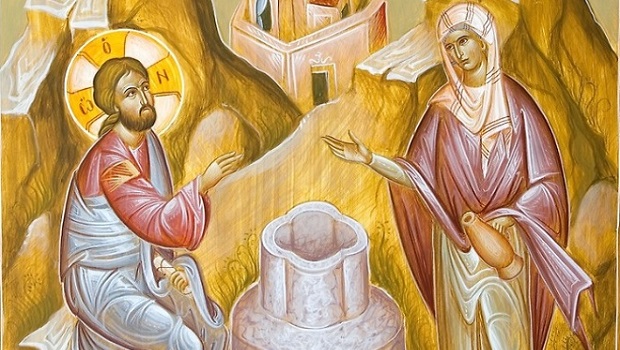Saint John Chrysostom
‘Anyone who loves their soul will lose it, while anyone who hates their soul in this world will keep it for eternal life. Whoever serves me must follow me’.
This present existence is sweet and full of much pleasure. Not to everyone, but to those who are attached to it. But if people look to heaven and see the beautiful things there, they’ll soon scorn this life and think it of little account. The beauty of a body is admired just so long as nothing more beautiful is seen, but when a more beautiful body appears, the former is held in less esteem. If we were to look at that beauty and observe the splendor of the kingdom there, we’d soon be free of our present chains. Because this attachment to present things is a kind of chain. Listen to what Christ has to say to introduce us to this: ‘Anyone who loves their soul will lose it, while anyone who hates their soul in this world will keep it for eternal life. Whoever serves me must follow me, and where I am, my servant will also be’.
These words seem to be a riddle, though they aren’t and are actually filled with great wisdom. How shall those who love their soul lose it? When they act on its inappropriate desires, when they take gratification where they shouldn’t. Someone exhorts us not to walk in the desires of our soul [Ecclesiasticus 18, 30]. If we do so, we’ll destroy it, because it takes us away from the path which leads to virtue. On the other hand, those who hate their soul in this world will preserve it. What does ‘hate’ mean, here? Not yielding to it when it commands something pernicious. He didn’t say ‘anyone who doesn’t yield’, but ‘anyone who hates’, because, just as we can’t bear to hear the voice of someone we loathe or to look at them with any degree of pleasure, so we must turn away from our soul very forcefully when it demands things which aren’t pleasing to God. This was because He was going to speak about death, His own, and saw that they were dejected and despondent. What He was saying was: ‘What can I say if you don’t bear my death bravely? Because if you yourselves don’t die, you’ll gain nothing’. See how He softens the discourse. It would have been hard and saddening to be told that if you love your soul you must die. And I’m not talking only about the olden days; even today there are many who suffer anything gladly in order to enjoy this present life, no matter that they’re convinced about what awaits. When they look at buildings or works of art and devices, they weep and reflect: ‘Look at all the things we’ve invented, but still we end up as dust’. So great is the longing for this present life. It’s in order to undo these bonds that Christ says that those who hate their soul in this world will keep it in eternal life. So that you understand that He was exhorting them and dissipating their fears, listen to what comes next.
‘Whoever serves me must follow me’. He’s speaking of death and requires His followers to do so through deeds. Certainly, those who serve have to follow whoever is served. And see when He said this to them: not when they were persecuted, but when they were confident; when they believed themselves to be safe, because of the honor and attention of the crowds; when they were able to take courage and listen properly. ‘Let them take up their cross and follow me’ (Matth. 16, 24). In other words: ‘Be prepared at all times for dangers, for death and for your departure from here’. Then, after He’d said what was hard to hear, He also highlights the prize. What is this? Following Him, being where He is. He shows that the Resurrection will succeed death. As He says: ‘Where I am, my servant will also be’. And where is Christ? In heaven. So let’s take ourselves there in soul and mind even before the Resurrection.
‘If anyone loves me, my Father will love them’. Why didn’t he say ‘I’? Because as yet, they didn’t hold the right view of Him, but still held a higher opinion of the Father. How could they imagine anything so great when they still didn’t even know that He was going to rise? This is why he said to the sons of Zebedee: ‘It is not mine to give but it shall be given to them for whom it is prepared by my Father’ (Mark 10, 40), even though it’s He Who will judge. But in this passage He also establishes His genuine sonship: because His Father will receive them as servants of His own Son.
Source: pemptousia.com




0 Comments